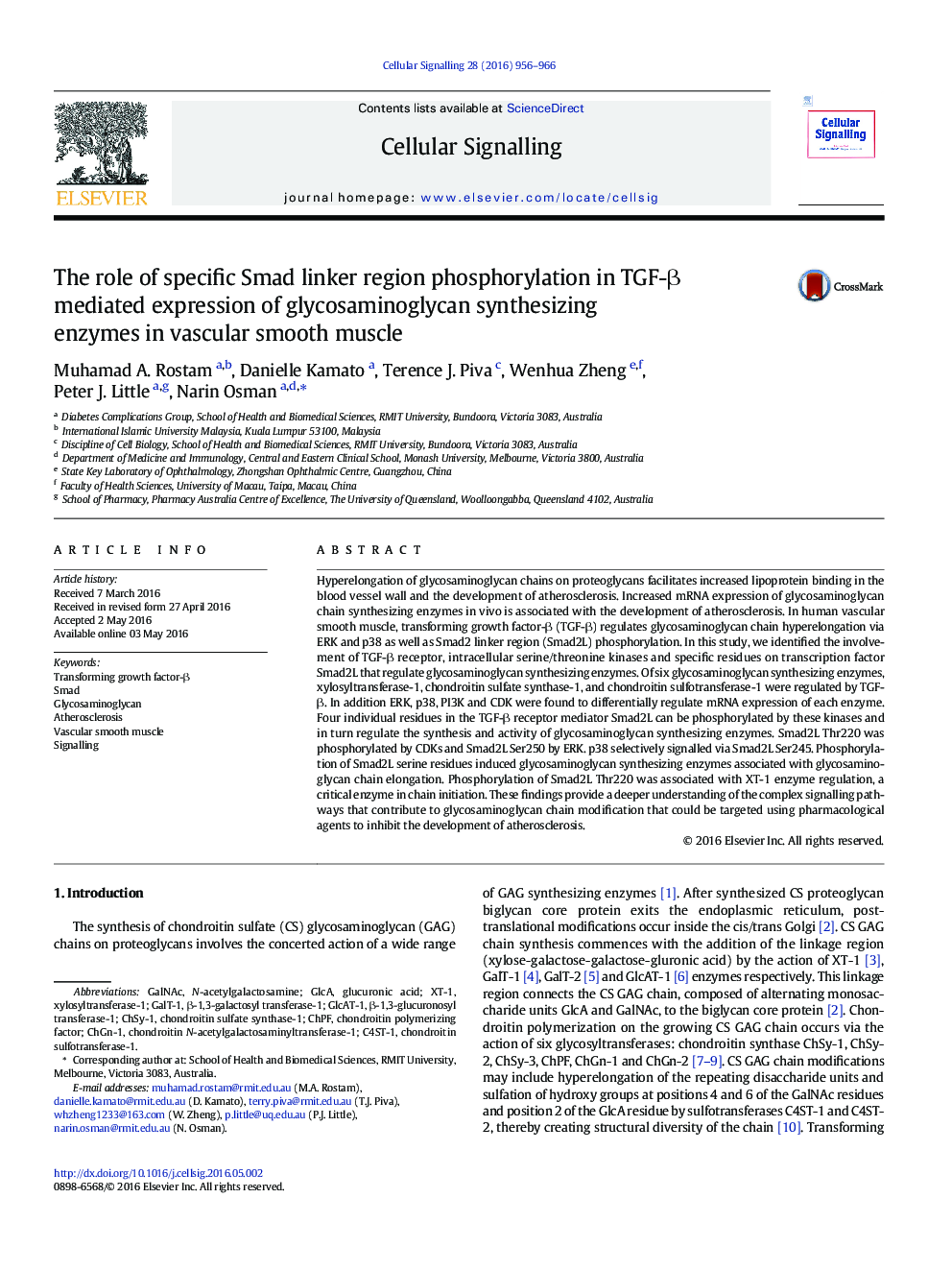| Article ID | Journal | Published Year | Pages | File Type |
|---|---|---|---|---|
| 10815873 | Cellular Signalling | 2016 | 11 Pages |
Abstract
Hyperelongation of glycosaminoglycan chains on proteoglycans facilitates increased lipoprotein binding in the blood vessel wall and the development of atherosclerosis. Increased mRNA expression of glycosaminoglycan chain synthesizing enzymes in vivo is associated with the development of atherosclerosis. In human vascular smooth muscle, transforming growth factor-β (TGF-β) regulates glycosaminoglycan chain hyperelongation via ERK and p38 as well as Smad2 linker region (Smad2L) phosphorylation. In this study, we identified the involvement of TGF-β receptor, intracellular serine/threonine kinases and specific residues on transcription factor Smad2L that regulate glycosaminoglycan synthesizing enzymes. Of six glycosaminoglycan synthesizing enzymes, xylosyltransferase-1, chondroitin sulfate synthase-1, and chondroitin sulfotransferase-1 were regulated by TGF-β. In addition ERK, p38, PI3K and CDK were found to differentially regulate mRNA expression of each enzyme. Four individual residues in the TGF-β receptor mediator Smad2L can be phosphorylated by these kinases and in turn regulate the synthesis and activity of glycosaminoglycan synthesizing enzymes. Smad2L Thr220 was phosphorylated by CDKs and Smad2L Ser250 by ERK. p38 selectively signalled via Smad2L Ser245. Phosphorylation of Smad2L serine residues induced glycosaminoglycan synthesizing enzymes associated with glycosaminoglycan chain elongation. Phosphorylation of Smad2L Thr220 was associated with XT-1 enzyme regulation, a critical enzyme in chain initiation. These findings provide a deeper understanding of the complex signalling pathways that contribute to glycosaminoglycan chain modification that could be targeted using pharmacological agents to inhibit the development of atherosclerosis.
Keywords
Related Topics
Life Sciences
Biochemistry, Genetics and Molecular Biology
Biochemistry
Authors
Muhamad A. Rostam, Danielle Kamato, Terence J. Piva, Wenhua Zheng, Peter J. Little, Narin Osman,
